About the collections
The National Library’s collection of material stretches back more than a thousand years and grows larger every day. Here you'll find both famous rarities and things that nobody else is looking for.
The collection includes both printed and digital material – such as film and music – as well as manuscripts, maps and photographs. Most of our printed and physical material is stored in underground storage facilities.
Listed below are the different types of material and where you can find them. However, many of the search services are in Swedish. If you need help finding what you are looking for, our staff will be happy to assist you further.
Our collections

The book collection includes items from the whole history of book printing, from the 15th century till today.
Study the monograms of old royal bands, compare storybooks through the ages or investigate the cookbook trends of recent years. We have everything you can imagine.
What sets the National Library apart from other libraries is that we don't sift and sort through our Swedish collection. All books published in Sweden are collected and everything is preserved. So you'll find the same books as in your public library, but also rarities that you won't find anywhere else.
Request material
Services:
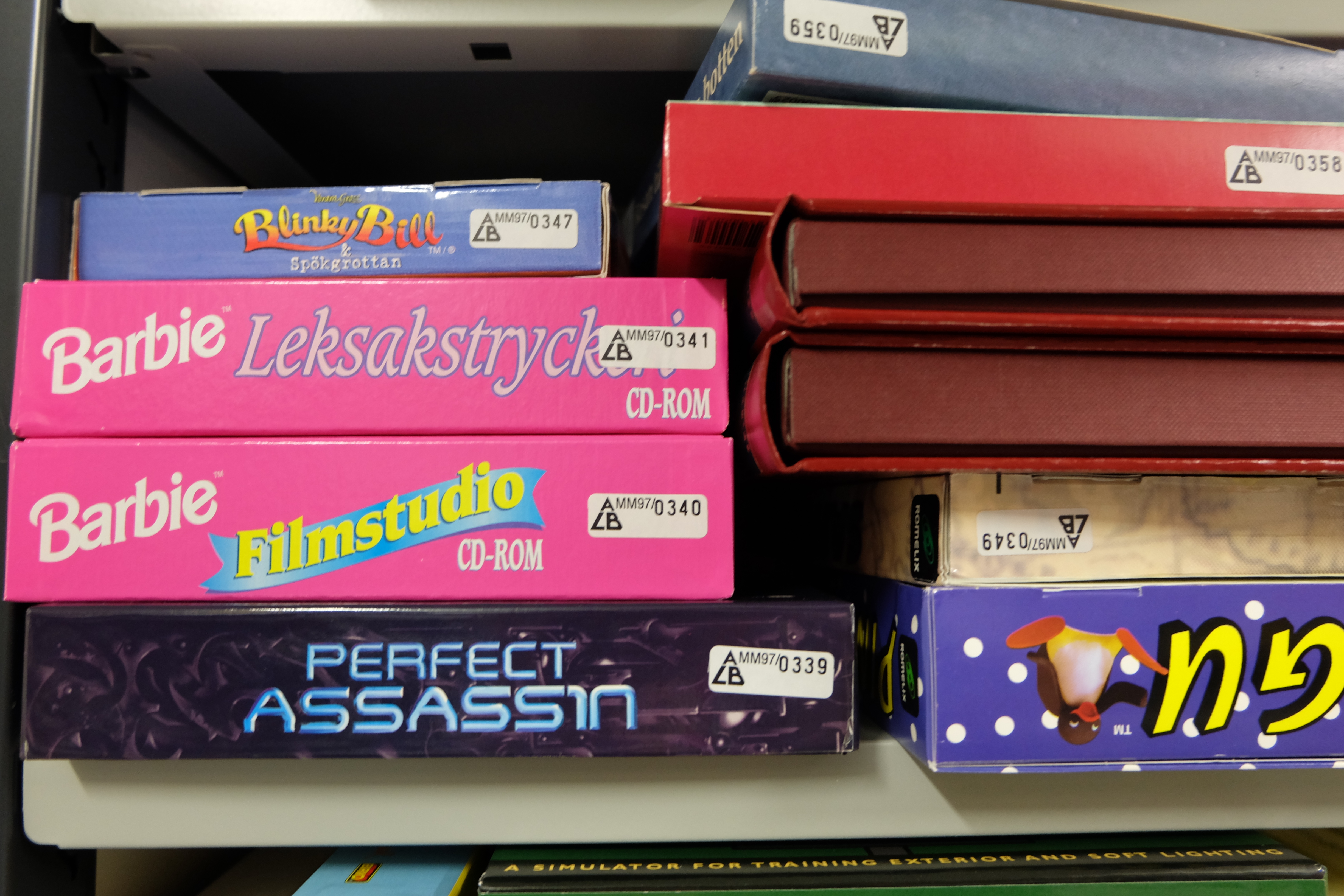
The computer games collection is a relatively new but exciting addition, with titles ranging from CD-ROMs to Minecraft.
Games are an important cultural form that is central to most people's lives and everyday life. The National Library has been collecting games and interactive media in physical form (such as PC and Playstation disks) since 1995. We also have consoles for most of our games.
We are happy to receive donations of games produced in Sweden. We are also interested in games published abroad by Swedish game developers, or games with a Swedish model or with Swedish music.
Request material
Services:
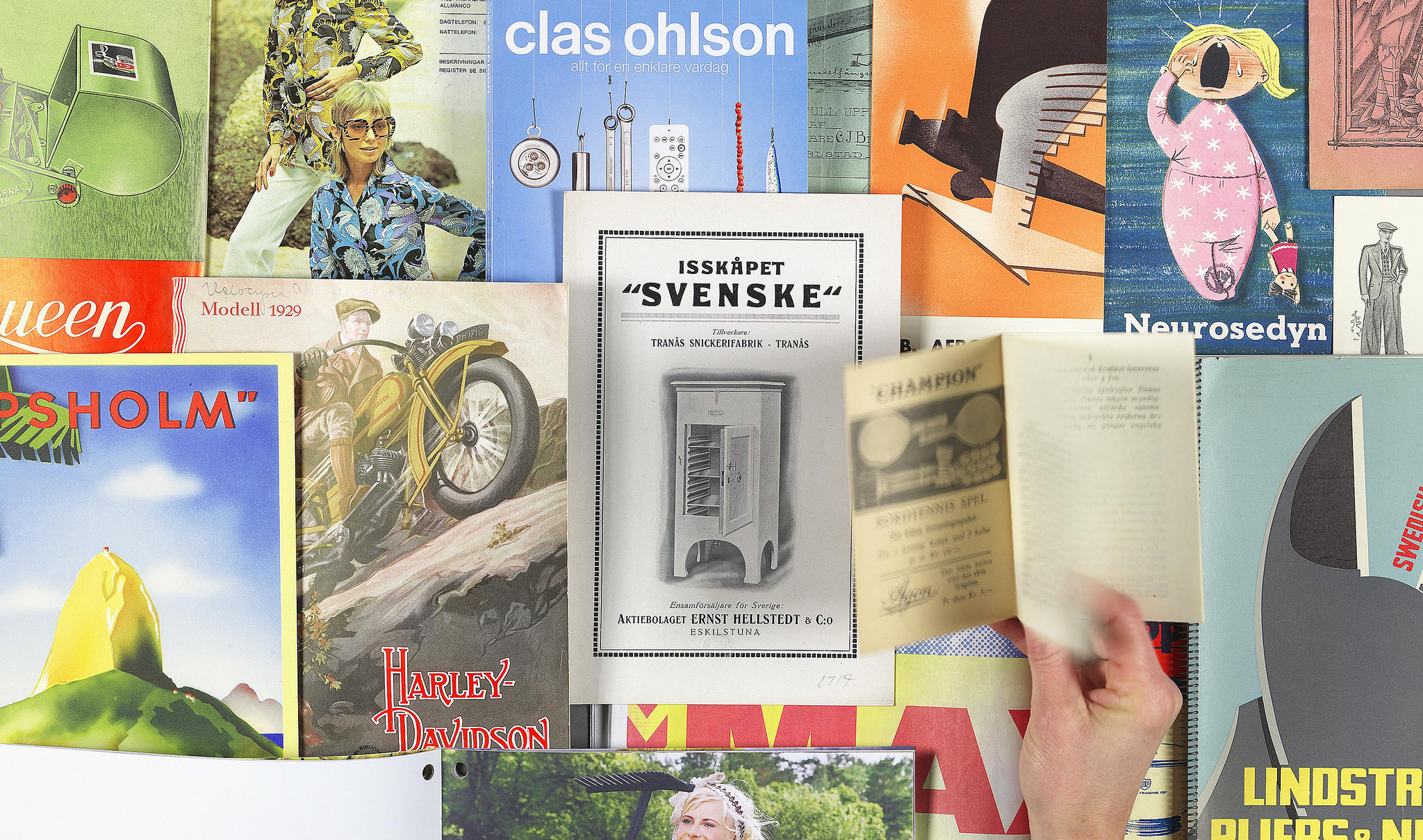
Ephemera is printed material that was never intended to be collected or preserved, and ranges from advertisements to school catalogues.
The National Library's collection of ephemera includes information and advertising material from companies, institutions, organizations and associations. Here you will find publications and prints with local distribution, magazines and membership magazines.
We also hold a large number of publications produced for internal distribution within companies, organizations, and public authorities. While most of the material is from recent decades, the collection dates back as far as the 17th century.
Request material
Services:
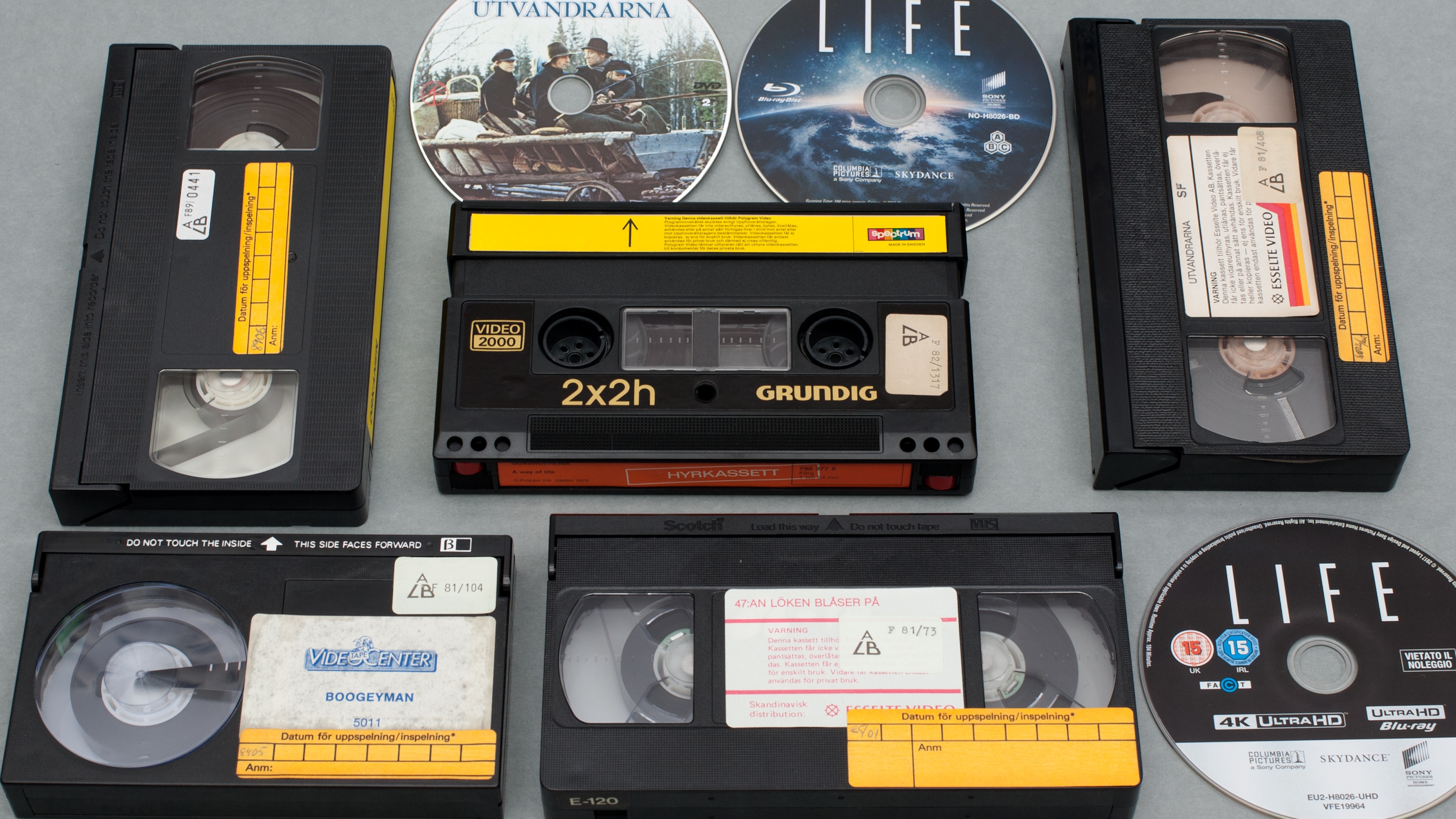
The collection of film and video includes fiction and fact, cinema films and material never having reached a wider audience.
Since 1979, The National Library has collected films that have been shown or distributed in Sweden. In addition to feature films, we have newsreels, older commercials and video recordings from Swedish theaters.
The collections include foreign films that have been shown in Swedish cinemas or have been available for purchase or rental – as well as both Swedish and foreign films that have been shown on Swedish television.
The National Library is also a cultural history archive for films from associations, companies, municipalities, archives, museums and private individuals.
Request material
Services:
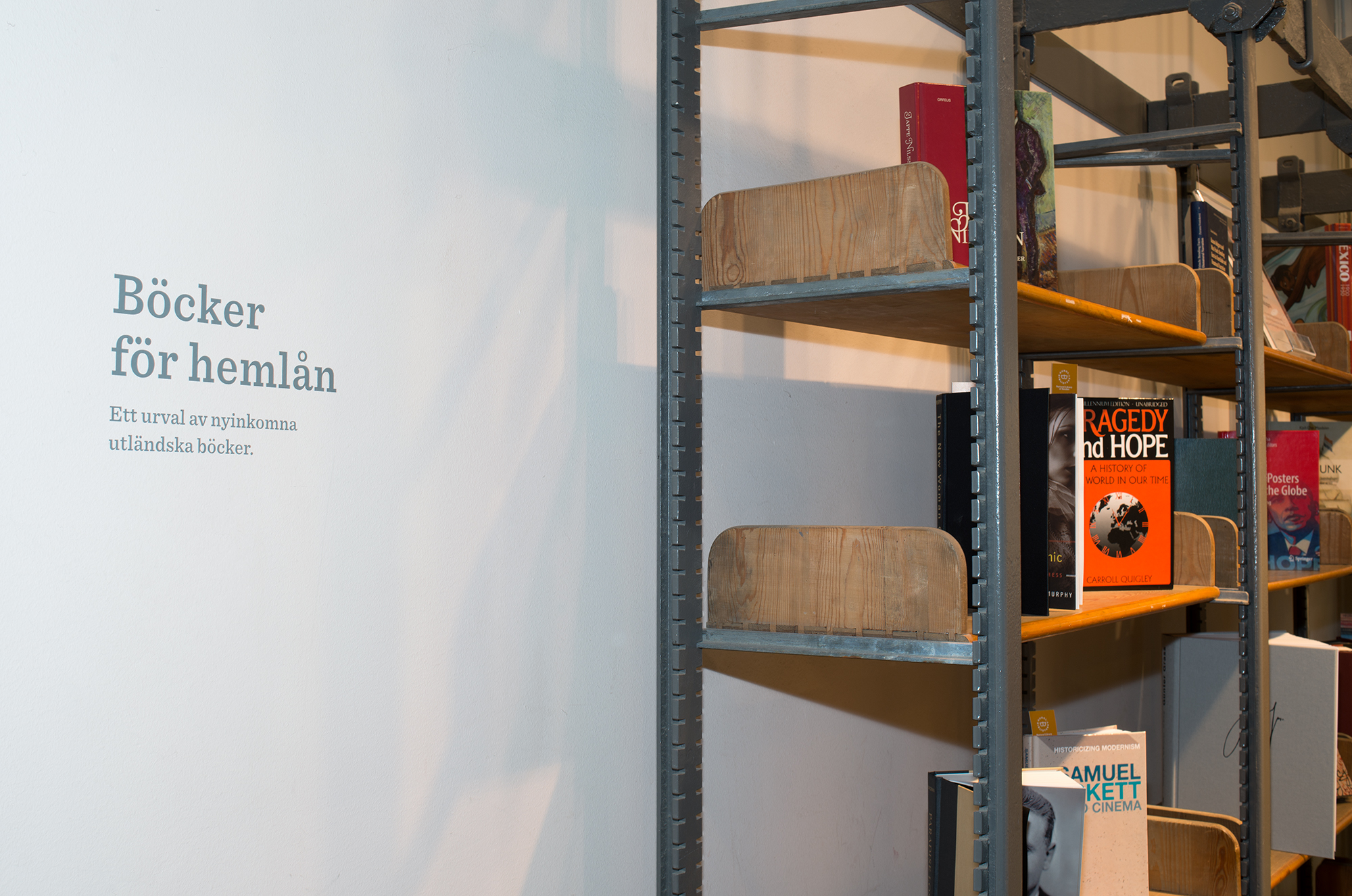
We hold a large collection of foreign-language literature for research in the humanities.
Priority is given to literature dealing with the history of European culture. Unlike our Swedish collections, much of our foreign literature is available for home loan.
The National Library subscribes to hundreds of foreign journals. The latest issue of most of them is available for reading in the library's periodicals reading room. In addition to those available in print, we also have a large number of e-journals.
Do you have suggestions for foreign literature we should purchase? Feel free to send us a proposal, using this form: Suggest a purchase.
Request material
Services:
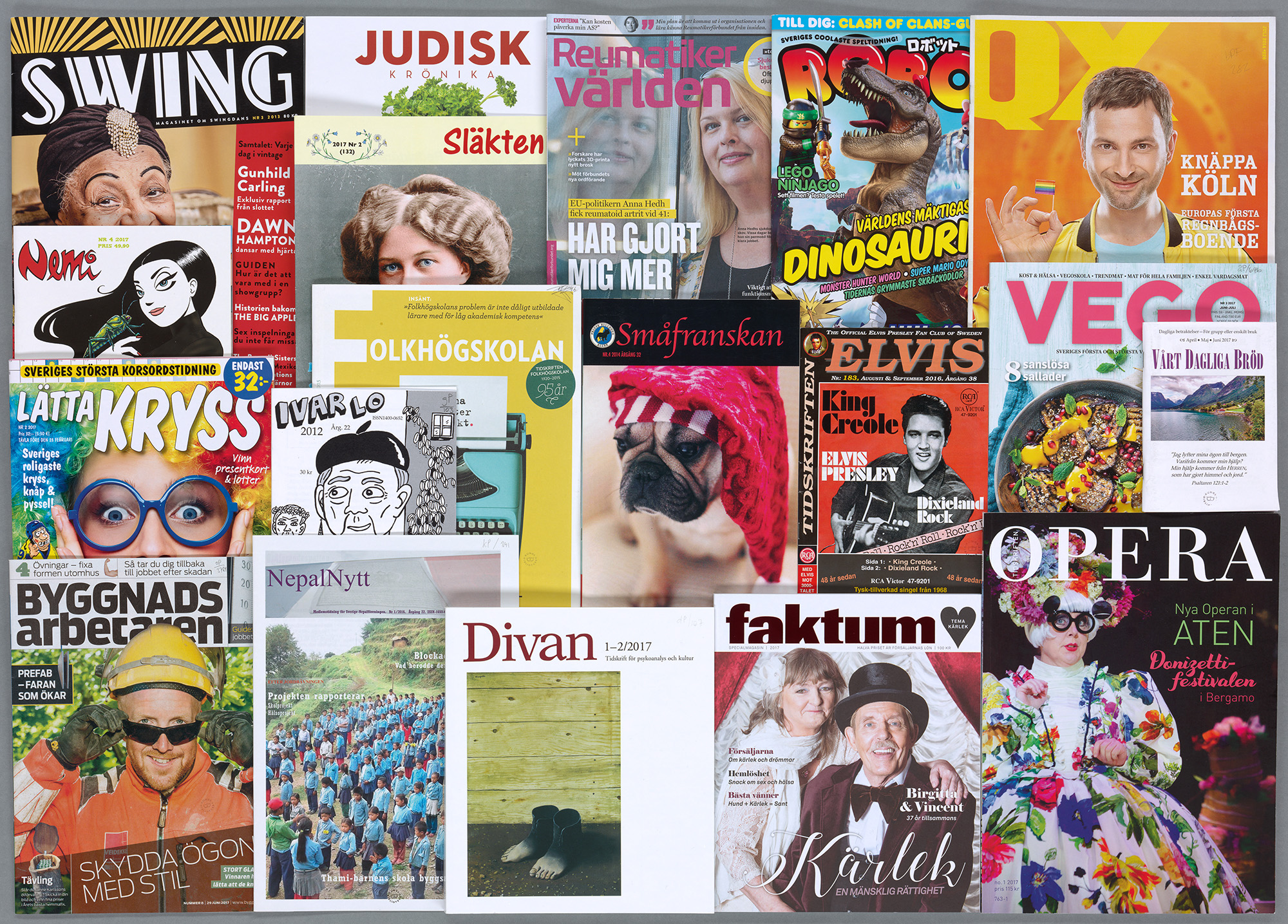
Comics, science or culture. Regardless of discipline or subject the Library has a magazine for everyone.
For over 350 years we have collected and preserved magazines published in Sweden. In addition to those you recognize from the shelf in the grocery store, you will find those that are only distributed locally, such as the membership magazine from the association you are a member of.
On floor 2 of the the library's annex you will find the latest edition of around 900 Swedish and foreign periodicals. You can read these directly on site.
The National Library subscribes to foreign journals with a Swedish connection ("Suecana") as well as journals in the humanities and in the field of books and librarianship.
Request material
Services:
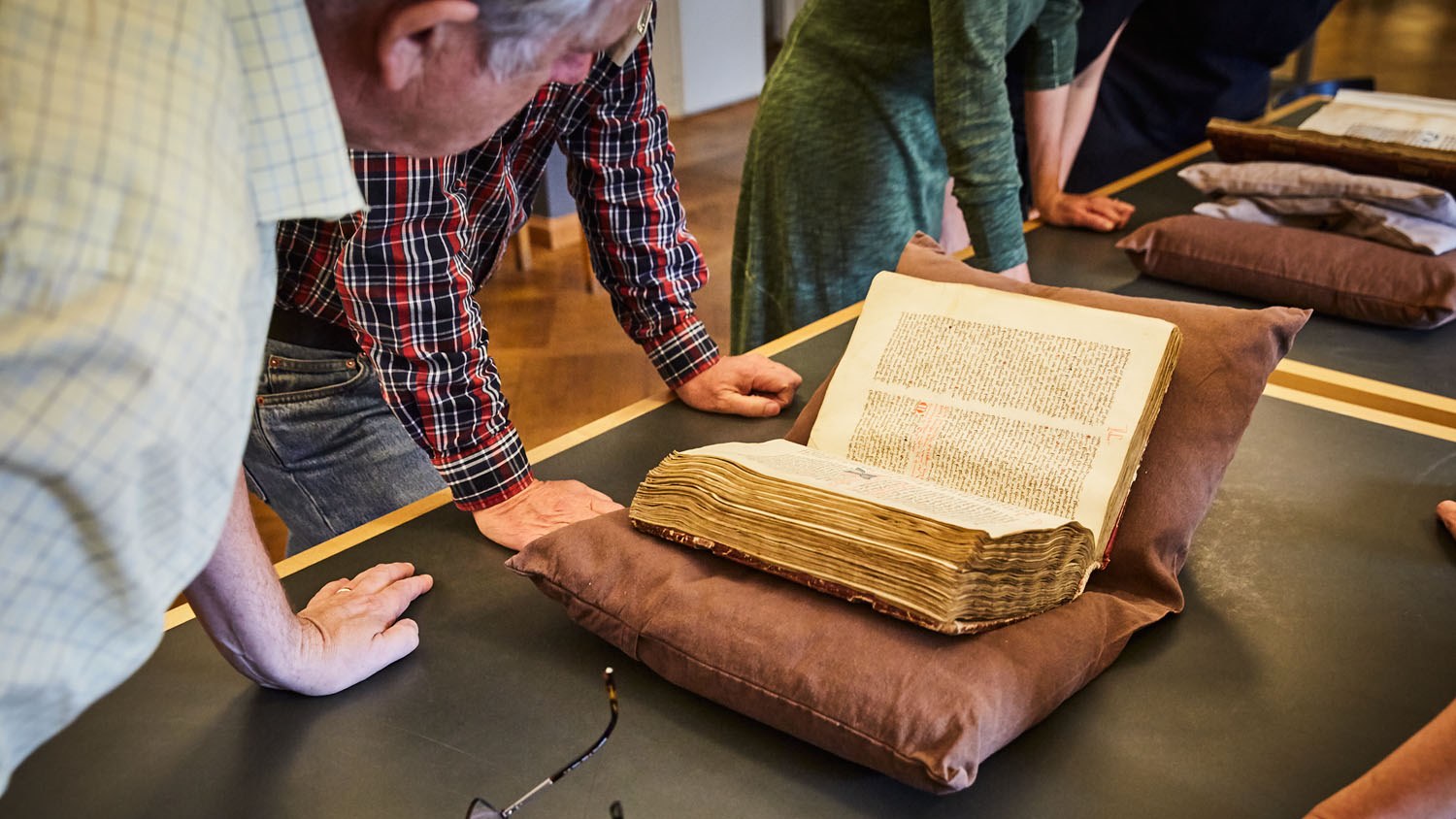
Manuscripts can be anything from ancient books to typed documents.
Manuscripts are unique and valuable historical documents, both of their time and of those who created or owned them. What different manuscripts have in common is that they are neither printed nor previously published.
The collection contains objects of all kinds and materials. Here you will find medieval books on parchment, as well as Icelandic sermons bound in sealskin. Several of the Library's most famous manuscripts came to Sweden as spoils of war during the Thirty Years' War (1618–1648). Among them is the world-famous "Devil's Bible", Codex Gigas.
Request material
Services:
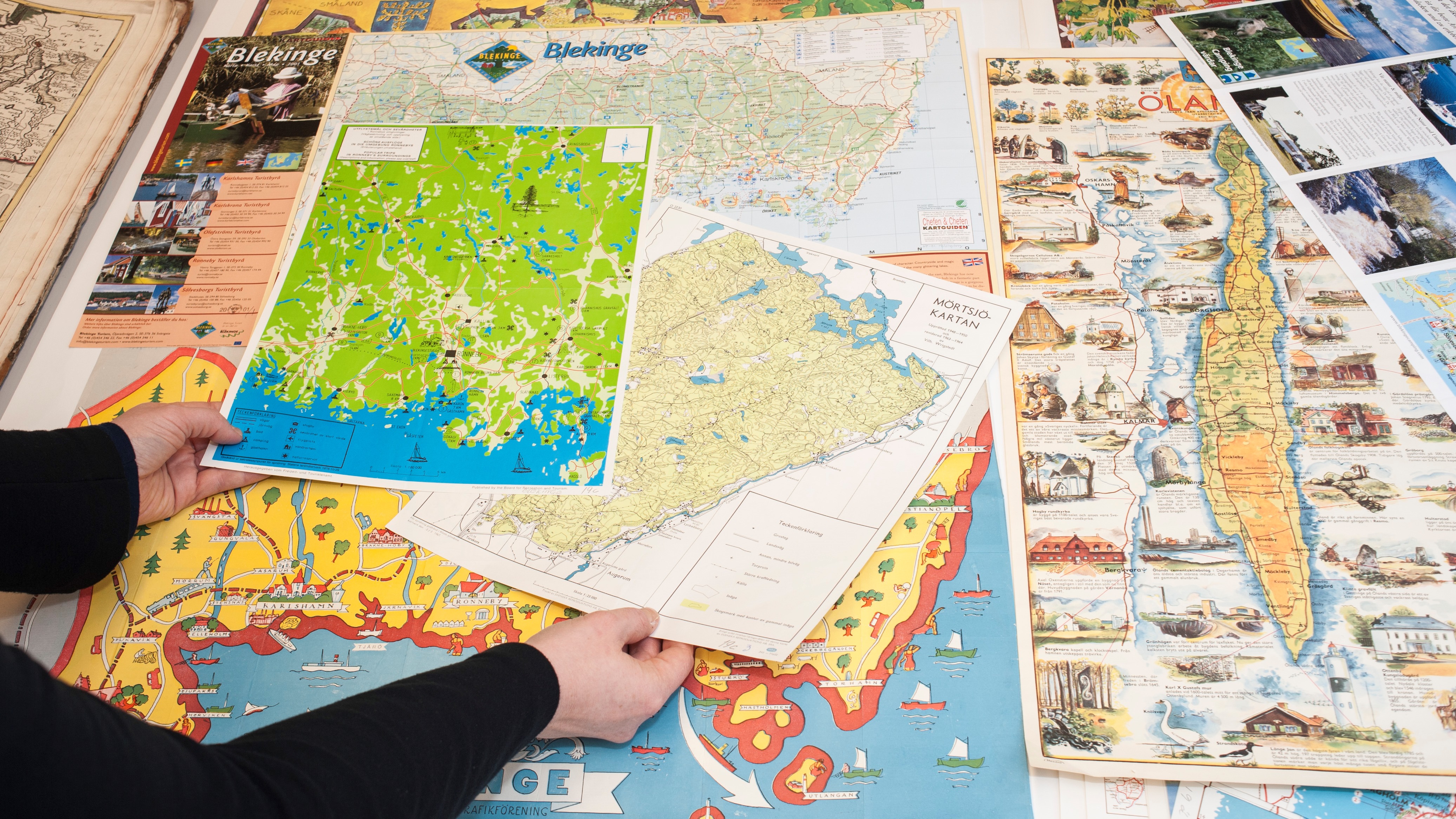
The map collection includes everything from 16th century maps with sea monsters to modern prints of boat routes.
At the National Library you can travel the world on 300,000 map sheets, 2,000 atlases and the occasional globe. Throughout history, maps have been used as orientation tools, symbols of power and ornaments.
We hold an almost complete collection of Swedish maps, official ones as well as hand-drawn maps. There are also thematic maps on war, history, economy, geology, administration and communications.
For a small country, we have an unusual number of foreign atlases and maps. Several of these are unique and of great international interest.
Request material
Services:
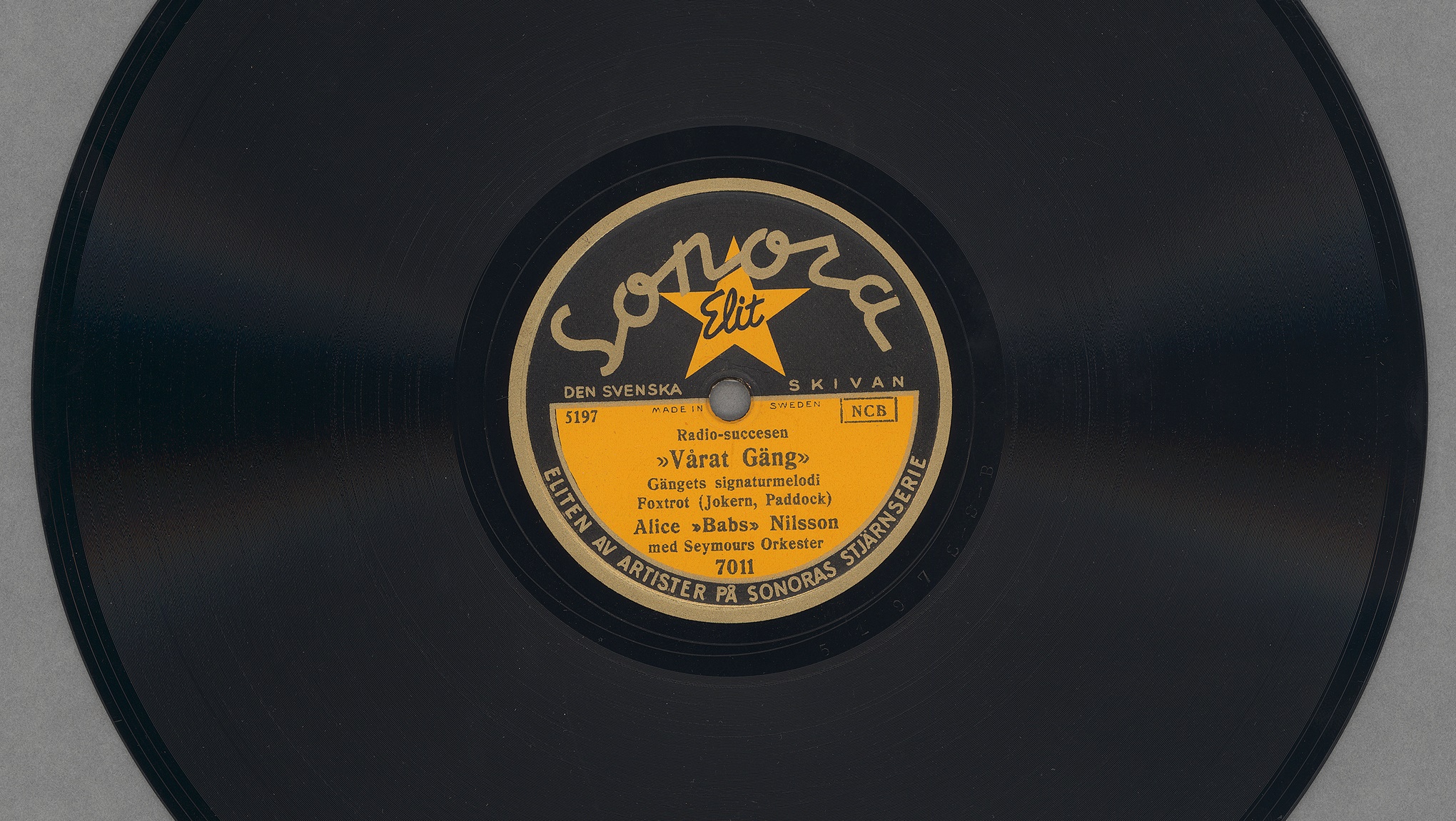
The Library holds recorded music in all kinds of formats, from CDs to phonograph cylinders.
The collection includes everything from the major record companies' wide releases to homemade releases on cassette or self-burned CDs. Some are very old but most are from 1979 and onwards.
In addition to Swedish releases, the Library collects foreign music with a Swedish connection. This can be a Swedish artist on a foreign record label, but also music with a Swedish producer or songwriter. That is why you will find both Britney Spears and Motörhead in our collection.
The National Library has also received several large record collections from passionate private individuals.
Request material
Services:
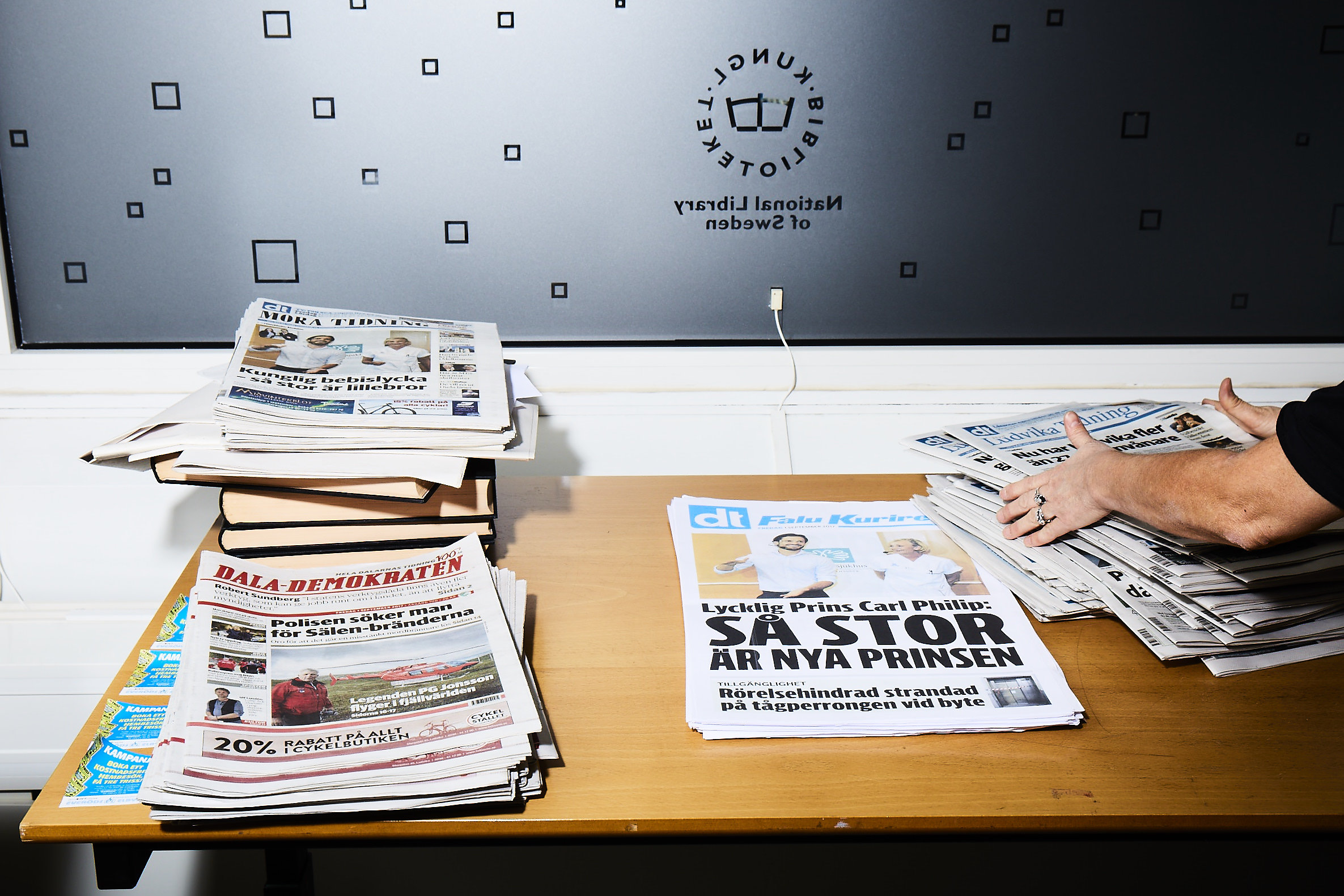
Almost all newspapers published in Sweden since 1645 can be found at the National Library.
Our newspapers are used extensively by everyone from journalists to genealogists. You need to read most of the newspapers on site in the Library's Newspaper Reading Room. Here you will find newspapers both on microfilm and in digital form. You can also access the digitised newspapers at several university and college libraries in the country.
Newspapers that are older than 100 years can be downloaded and read from home using the service Svenska dagstidningar (Swedish newspapers).
More about accessing the collection
Services:
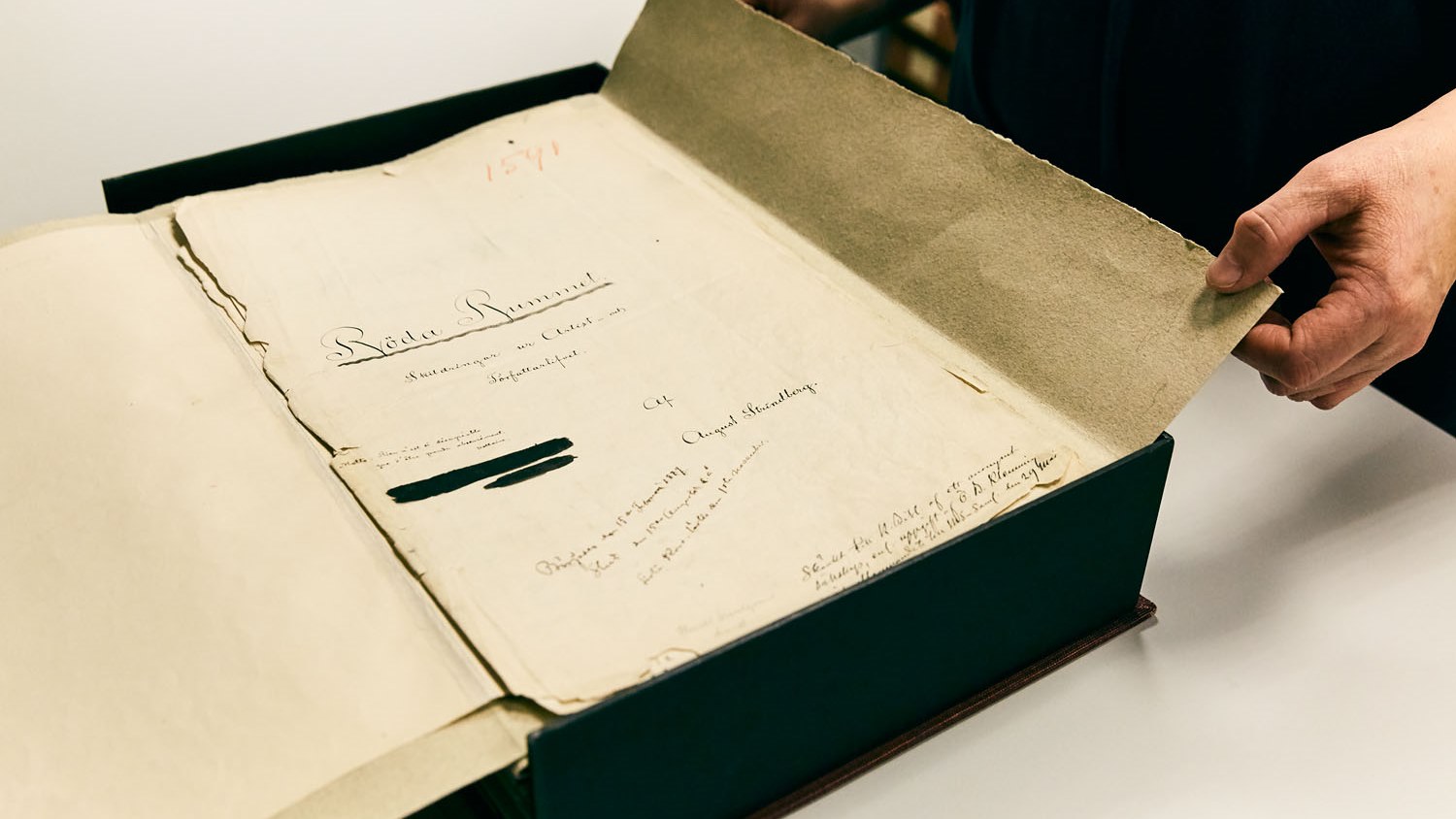
In the Library’s archive of personal archives, you can find documents from well-known writers, film producers, politicians, and more.
The personal archives offer a unique glimpse into the lives and works of some of Sweden’s most prominent figures. They contain everything from the formal to the personal, from the expected to the unexpected. Through the archives, you can follow the process of a writer or artist.
The Library also holds individual archives of families, associations and organizations, as well as archives relating to book publishing and magazines.
New archives are donated to us regularly.
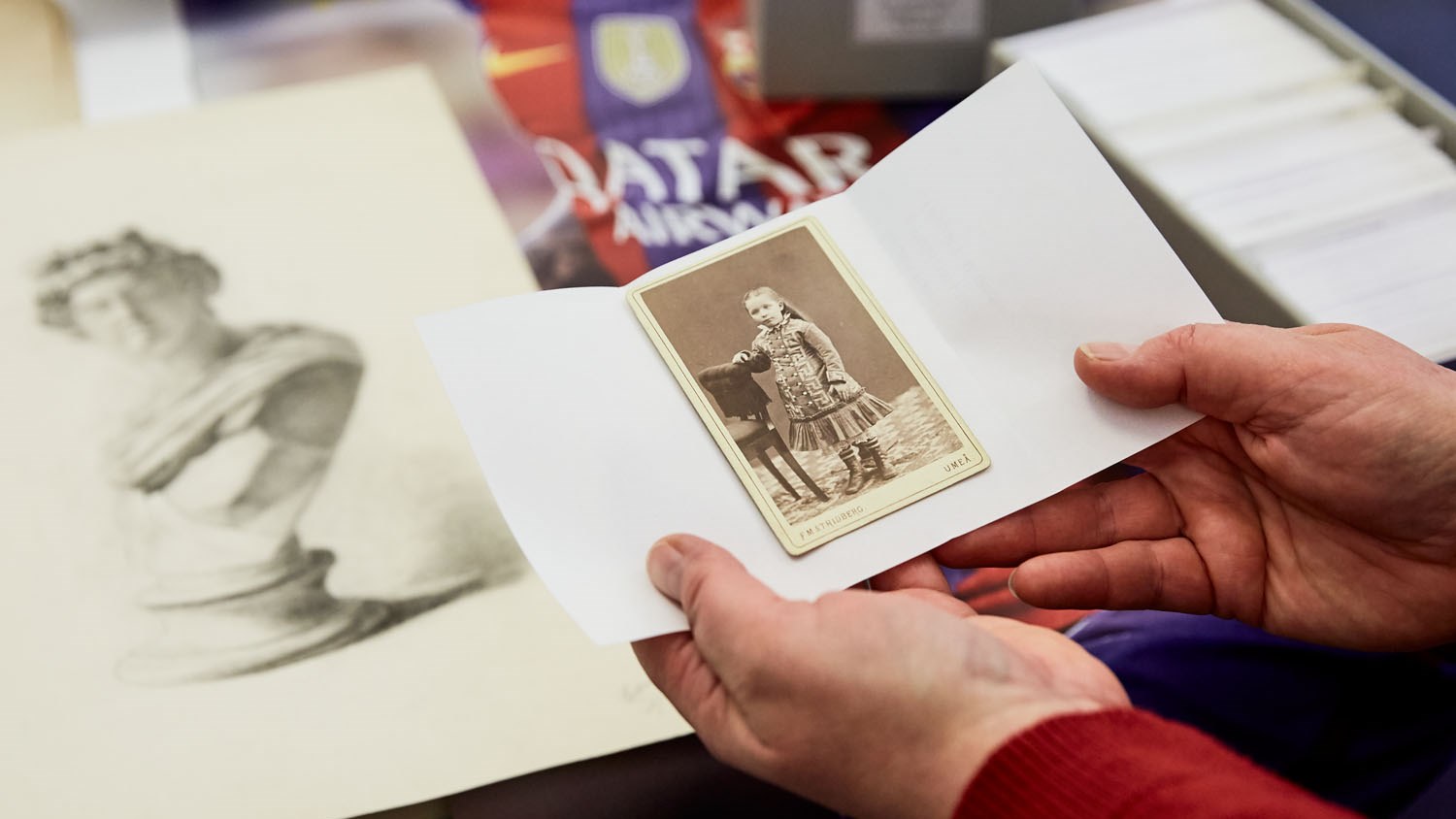
In our collection of photographs, you will find images of places and events, but most of all a large number of portraits.
The collection allows you to see how photography has changed throughout history.
Here you will find photographs of all kinds, from early photographic techniques to digital image files.
A large part of the material is portraits of both famous and unknown people. They can be seen in both austere studio portraits and in lively family pictures. Most of the pictures are taken by Swedish photographers – well-known studio and press photographers as well as amateurs. Some of them may have worked mostly for a living, while others were exalted pioneers.
Request material
Services:
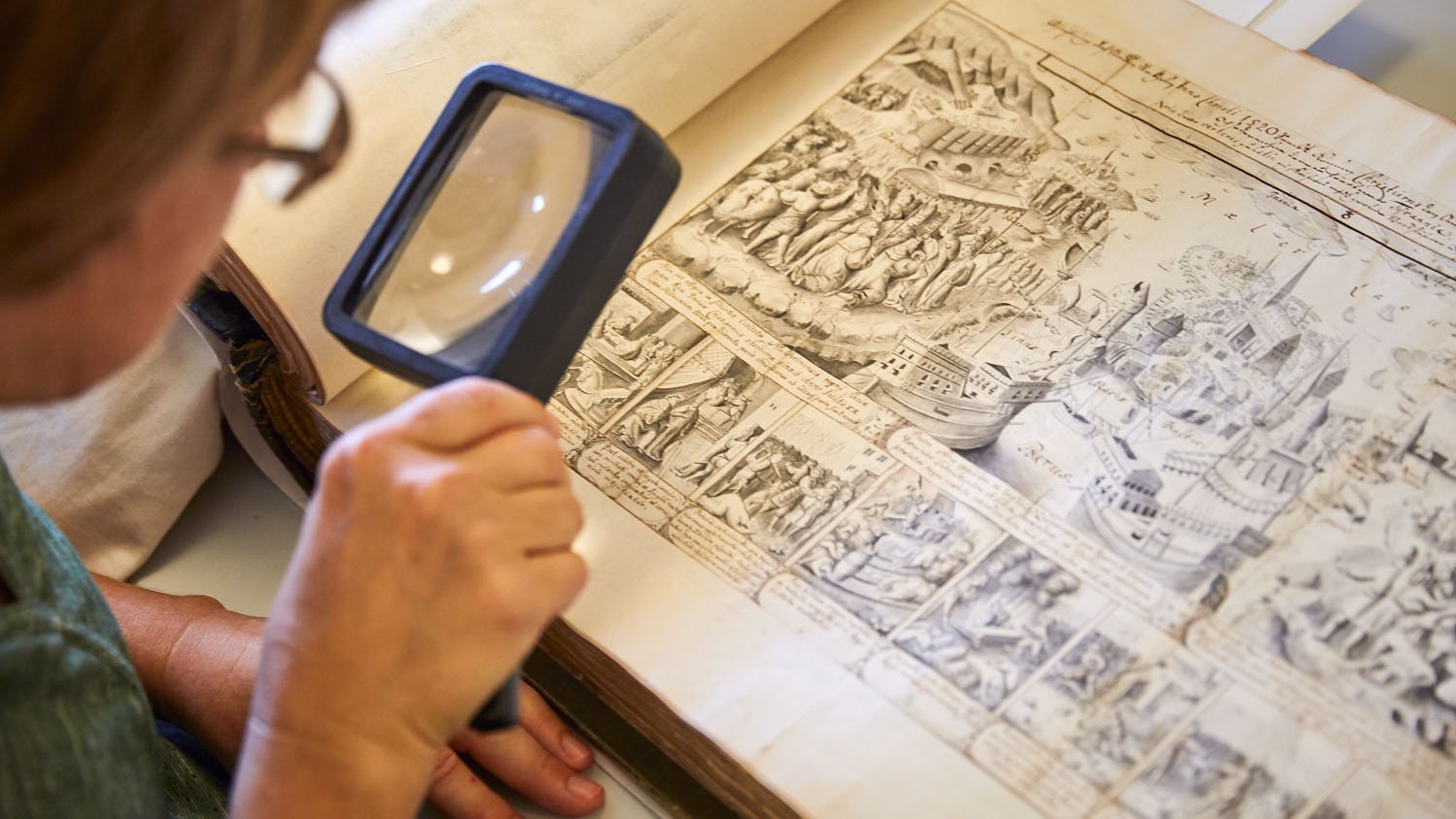
The collection of pictures includes everything from the grand and splendid to the everyday and mass-produced.
Here you will find images documenting what people and events actually looked like. The collection contains portraits, views and images depicting historical events. But also images that distort and embellish: caricatures, satires and stereotypes.
The Library's pictures provide an insight into how people throughout history have viewed and experienced the world around them. What did they choose to immortalise? The material ranges from historical war propaganda to 20th-century idol posters.
Request material
Services:
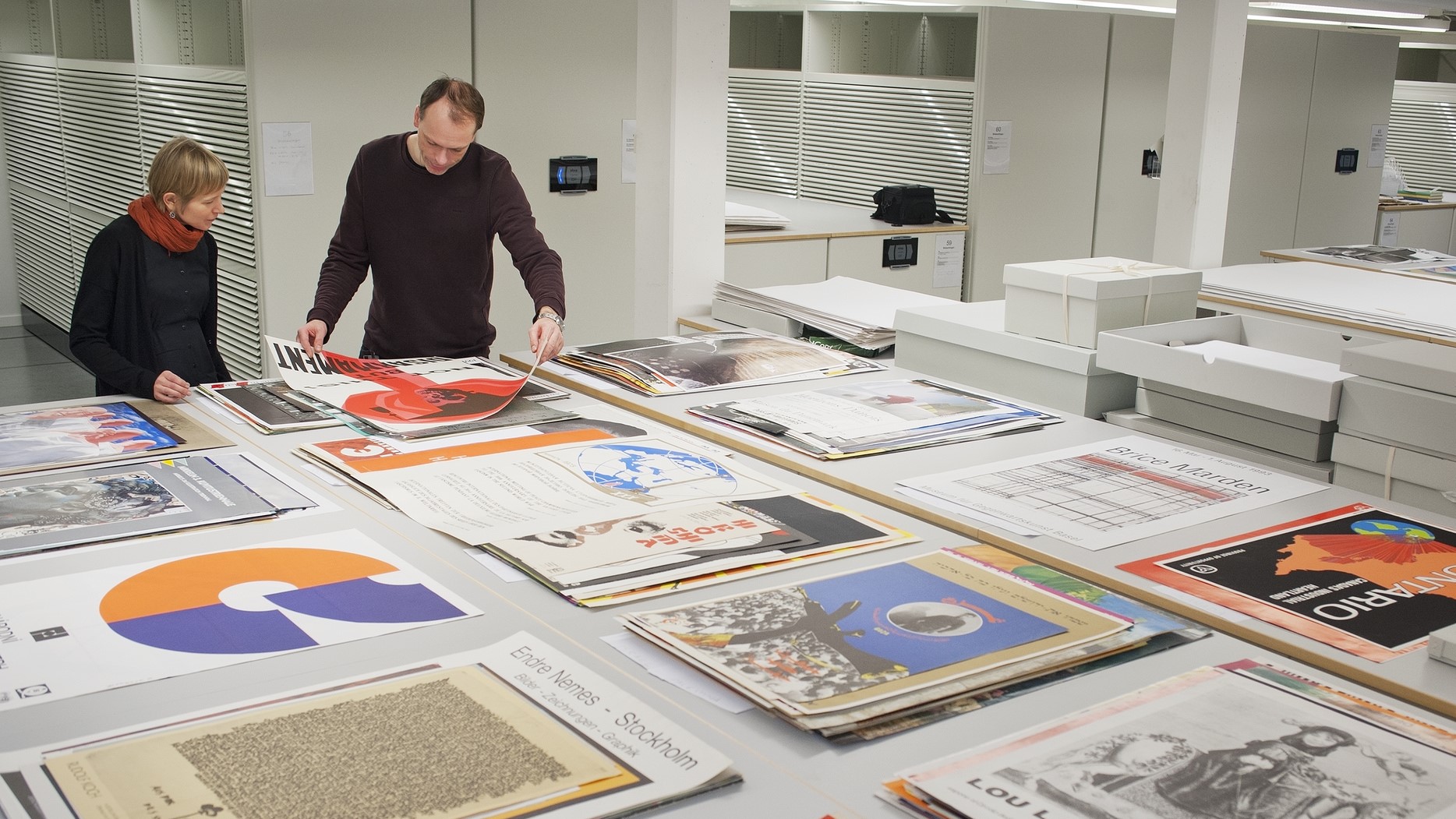
With more than a million posters, the National Library of Sweden’s collection is considered one of the largest in the world.
Today we see posters as a natural part of the urban environment, whether to inform about something or to influence the viewer. Posters are a perishable commodity, often intended to be used only for a short time. In the longer term, they can reflect the values, trends and important events of their time, as a kind of time mirror.
Our collection includes posters for advertising, information, and propaganda purposes. While the material is primarily Swedish, it also features posters from more than 90 countries.
Request material
Services:
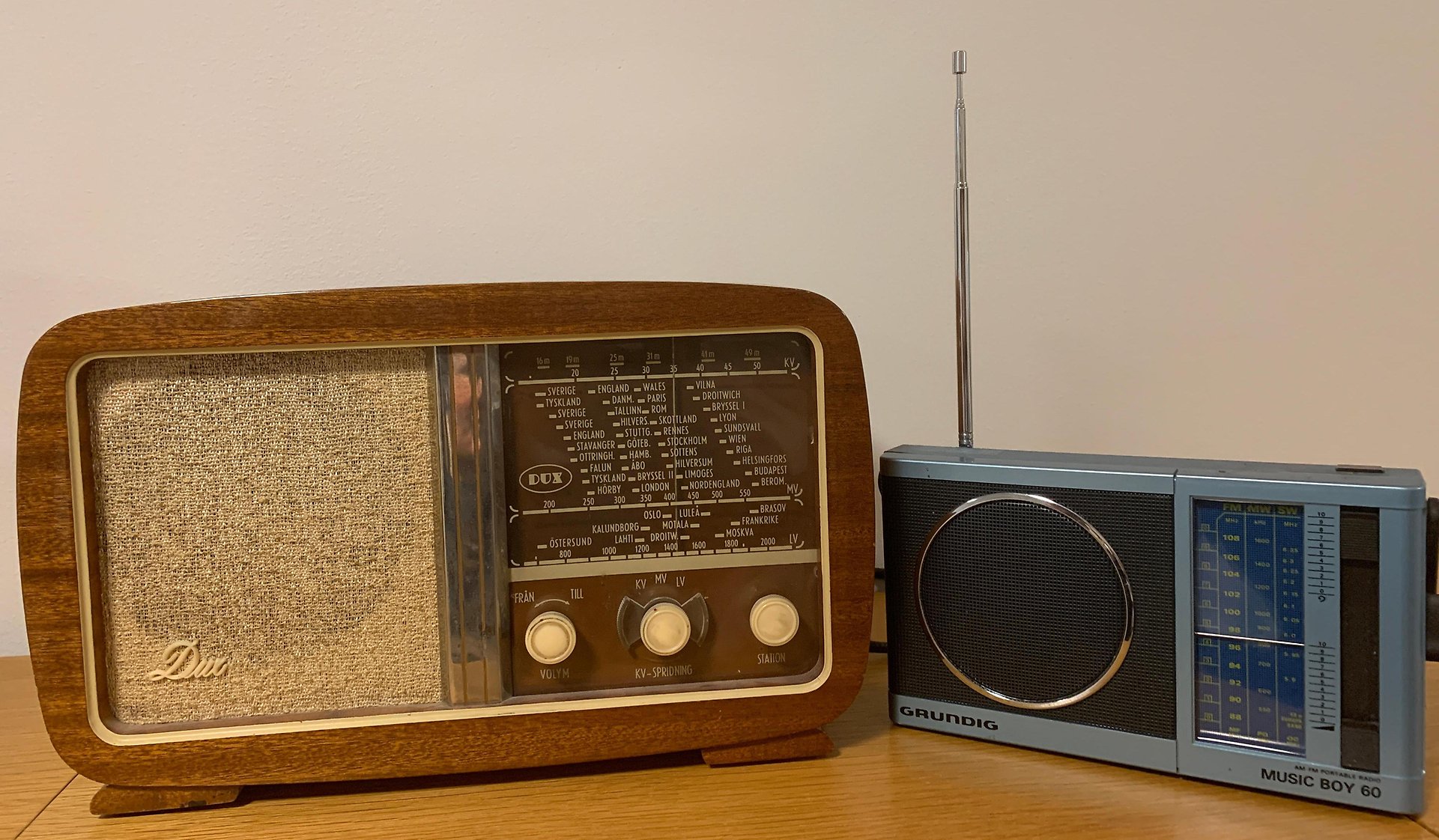
We have most of what has been aired in Swedish radio over the last 40 years, from news readings to music mixes.
Our collection mainly consists of radio programs from 1978 onwards, but we also have a small number of broadcasts from the early days of radio. The material can be used to examine news coverage, or make comparisons between entertainment programs from different times.
The National Library's collection offers an opportunity to study the evolution of radio as a medium. In the late 1970s, there were only a handful of channels, but by the 1990s, the number of commercial local radio stations had grown significantly. Today, web-based radio broadcasts are a natural part of the media landscape.
Request material
Services:
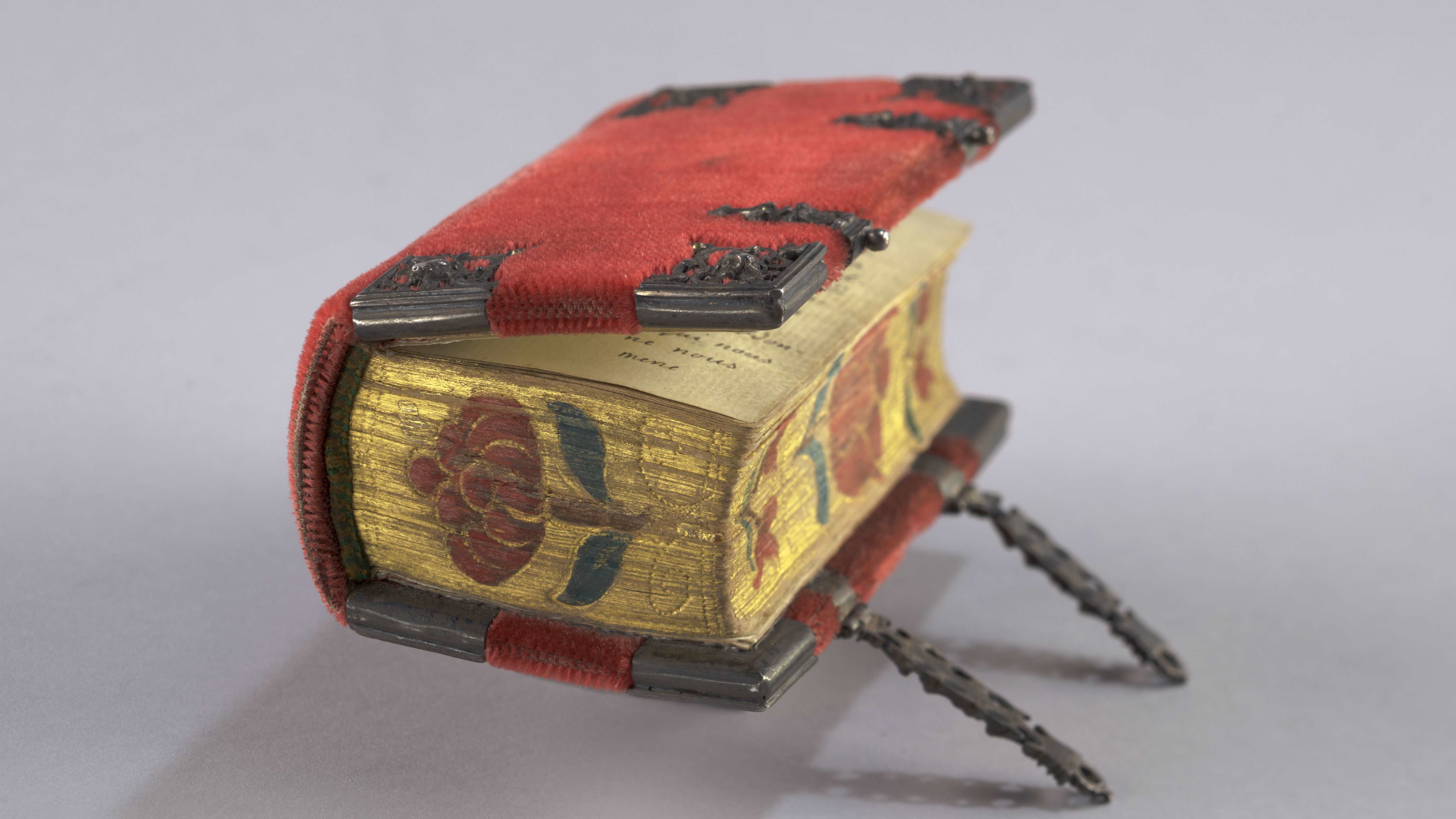
Our Special books collections offer a glimpse of different collectors’ passion for unique subjects and works.
The material comes from all over the world, spanning from the Middle Ages to the present day. They once belonged to royalty, institutions and authors, as well as private individuals who focused on niche topics. Many of the collections contain true rarities.
In the National Library's collections you will find, among other things:
- Bookbindings (the largest collection in Sweden)
- Robinsonades (likely the only collection in Sweden)
- Materials related to book production and bookbinding
- Special kinds of print, such as Bibles, miniature books, and artist’s books
Request material
You’ll find some of the material in our services, but you may need additional resources to find what you’re looking for. Feel free to contact info@kb.se.
Services:
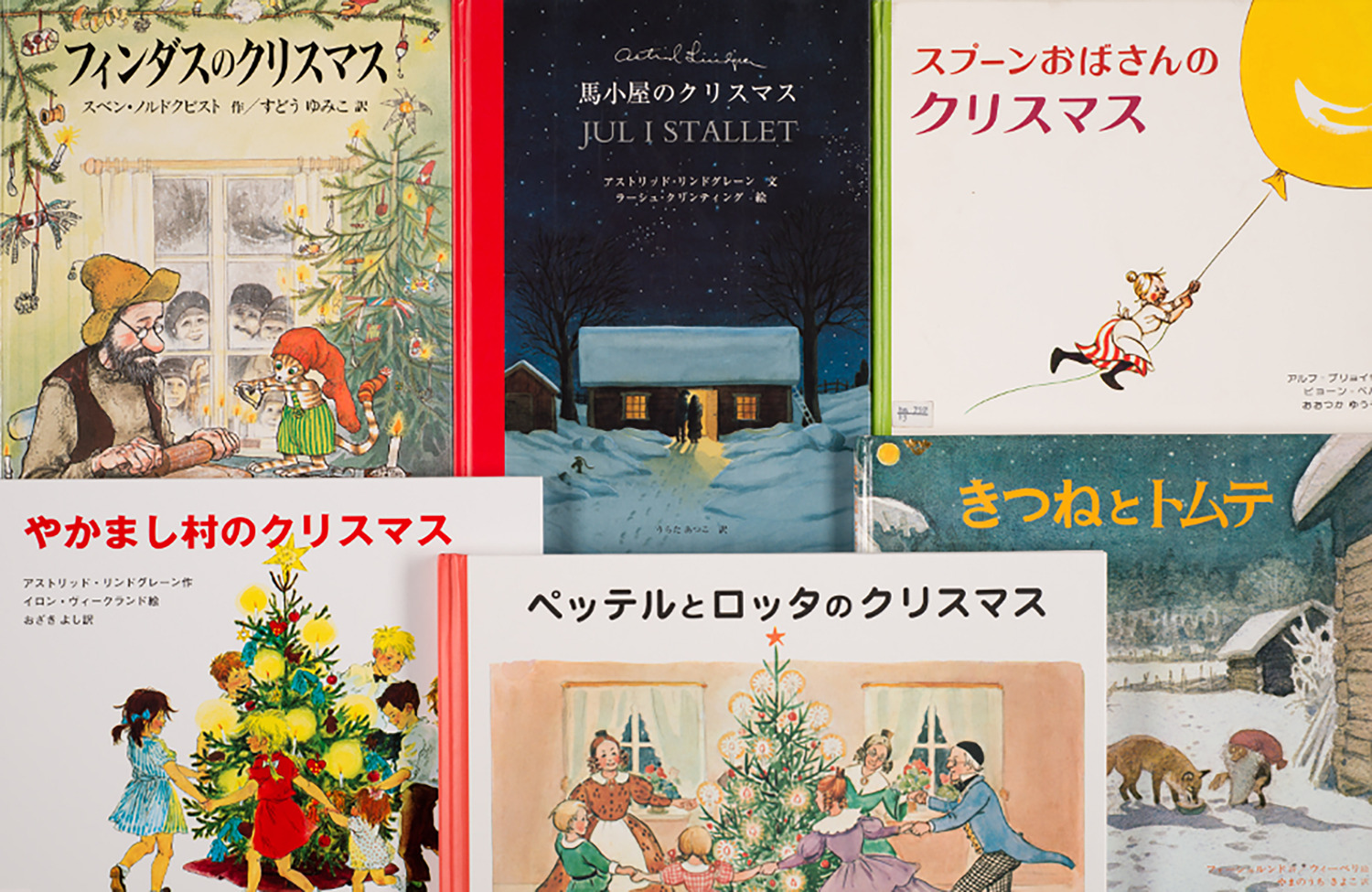
Suecana is a collection of material in foreign languages about Sweden or with a Swedish connection.
Suecana means "Swedish" in Latin. The collection contains literature as well as films, music and games. Swedish literature translated into other languages makes up the largest part of the collection, but you will also find books about Sweden and Swedish conditions.
The National Library also collects films, music and games with a Swedish connection published abroad. This may be a film based on a Swedish model, music by Swedish artists or games by Swedish game developers.
Request material
Services:
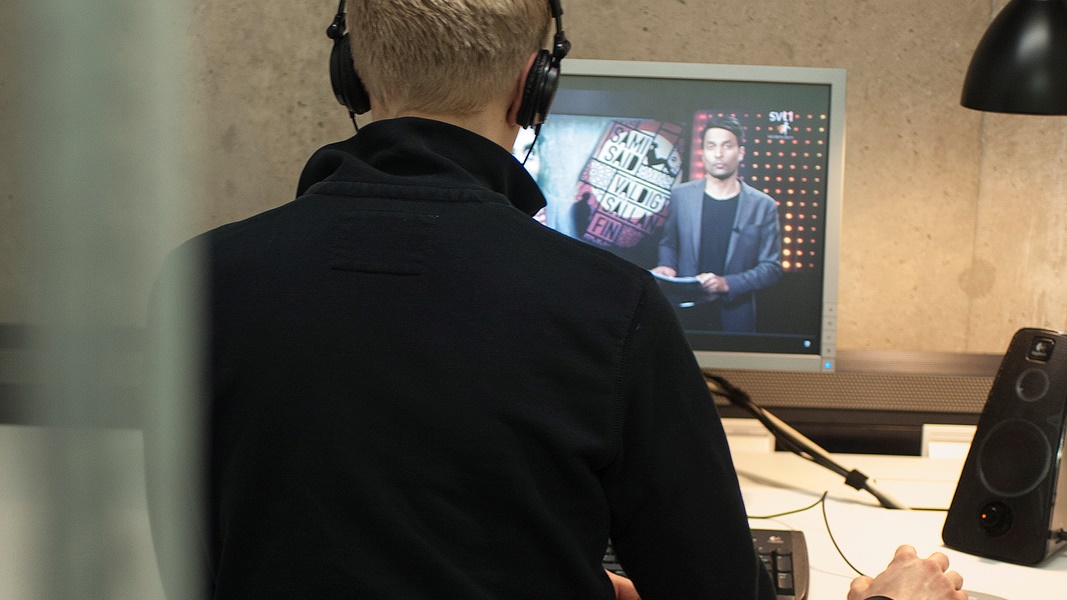
Our collection covers both national TV programmes and regional programmes from lesser known channels.
The National Library holds a collection of Swedish television broadcasts, mainly from 1978 onwards. We have programs from the national broadcasters as well as from smaller local channels around Sweden.
Television broadcasts reflect not only how society has changed, but also how the media landscape has evolved – from just two channels in the late 1970s to a steadily growing range in the 1990s. Today, web-based platforms and streaming services make up a significant share of TV viewing.
Request material
Services:
%20Arbete-vid-dator.jpg)
Our web archive holds a collection of Swedish websites, e-books, pod radio and internet videos.
Using a web robot, The National Library collects snapshots of the Swedish part of the internet. The collection takes place once or twice a year. Mass media websites are collected once a day. This collection can be accessed on site at the library through the service Kulturarw³.
The Library also collects and preserves Swedish material published in electronic form (E-legal deposit). These include web-based articles, e-books, films and podcasts, as well as government publications.
Services:
We collect without making value judgements
The National Library’s mission is to collect, describe, preserve and make available all material that has been produced and published publicly in Sweden without evaluating the content.
As a user, it is good to be aware that our collections contain older concepts, images and other historical content that today can be perceived as offensive or just generally outdated. Expressions that reflect the attitudes of the authors/creators in their time may evoke strong feelings today, but are part of our history and therefore necessary to our understanding of the past.


